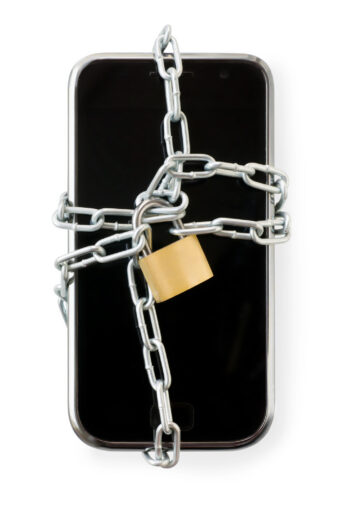In the digital age, cell phones, and computers are more than personal devices; they are reservoirs of sensitive information and have become a cornerstone of many federal investigations, especially in child pornography cases. Given the vast amount of personal data stored on these devices, they can become significant evidence in legal proceedings.
Here’s what you should know if federal agents seize your cell phone or computer and how you can defend your rights. Contact Chambers Law Firm at 714-760-4088 if you are facing any federal criminal charges.
Understanding Your Rights
The Legal Framework
Federal law generally prohibits law enforcement from searching your cell phone or computer without a warrant that specifies the device and the evidence sought. The Fourth Amendment of the U.S. Constitution underlines this by providing protection against unreasonable searches and seizures. This principle ensures that any search conducted by the government requires judicial approval supported by probable cause.
When Law Enforcement Can Search Without a Warrant
- Consent Given: If you voluntarily allow police to search, they do not need a warrant.
- Probation or Parole Conditions: Those under these conditions may have diminished privacy rights.
- Exigent Circumstances: In certain emergency situations, a search may be warranted without prior approval.
Challenging the Legality of the Seizure
A skilled defense attorney can mount a defense on several grounds, depending on the specifics of how your digital devices were seized.
Lack of a Warrant
- If your device was taken without a warrant, it might constitute an unconstitutional search.
Invalid Warrant
- A defense lawyer can argue that the warrant was too broad or based on insufficient evidence.
Exceeding the Scope of the Warrant
- If the search went beyond what the warrant specified, this could invalidate any evidence gathered during the search.
Successfully arguing these points might not only protect your privacy but could potentially dismiss the charges if critical evidence is ruled inadmissible.
Negotiating for Access and Preservation of Evidence
After a device is seized, it is crucial to ensure that all data is preserved and accessible for defense examination. This is a critical part of the discovery process, where the defense can:
- Negotiate terms of evidence access: Defense attorneys can set conditions for how and when they can access the seized data.
- Utilize forensic experts: Expert analysis can be essential for a thorough review of the digital evidence.
Suppressing Incriminating Evidence
If certain evidence could be detrimental to your defense, your attorney might seek to suppress it. This involves filing a motion to suppress under several potential grounds:
- Violation of Privacy: If the data was obtained through a breach of your reasonable expectation of privacy.
- Chain of Custody Issues: Problems in how evidence was handled could lead to suppression.
- Denial of Counsel: If you were denied the chance to speak with a lawyer before the search.
- Faulty Forensic Procedures: If the methods used to extract or analyze the data were flawed.
Utilizing Digital Evidence to Bolster Your Defense
Interestingly, the same devices might also contain evidence beneficial to your case. Defense teams meticulously review all retrieved data to:
- Support Alibis: Data might prove your whereabouts during the time of an alleged crime.
- Challenge Prosecution Claims: Information might contradict timelines or facts set by the prosecution.
- Uncover Exculpatory Evidence: Sometimes data might directly prove your innocence or mitigate the circumstances.
For more detailed guidance or to discuss your case, contact our federal criminal defense law firm, Chambers Law Firm, at 714-760-4088. We specialize in safeguarding our clients’ rights and ensuring their defense is robust and grounded in thorough legal scrutiny.





